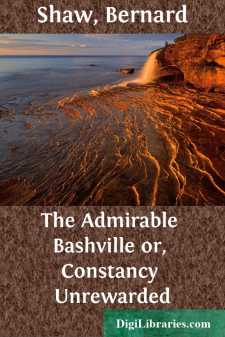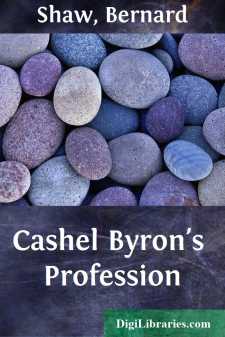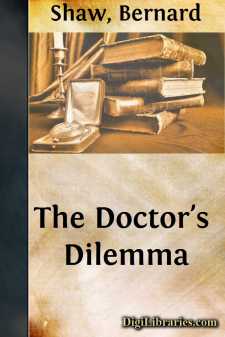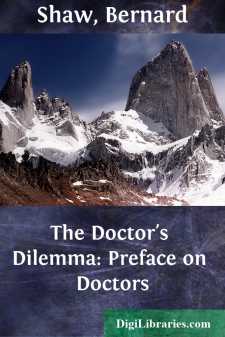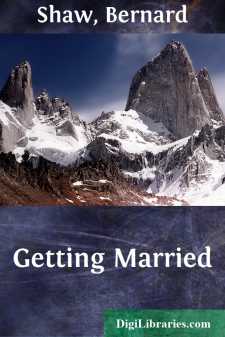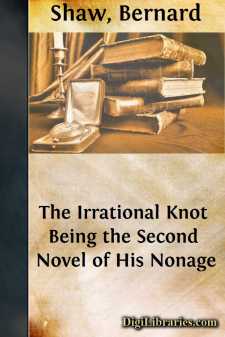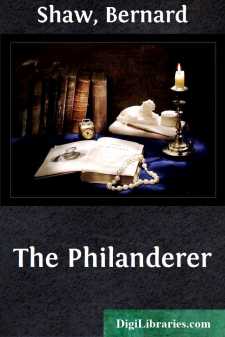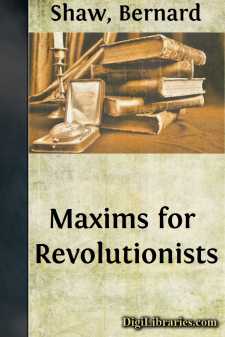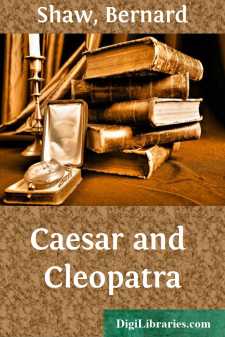Categories
- Antiques & Collectibles 13
- Architecture 36
- Art 48
- Bibles 22
- Biography & Autobiography 813
- Body, Mind & Spirit 142
- Business & Economics 28
- Children's Books 17
- Children's Fiction 14
- Computers 4
- Cooking 94
- Crafts & Hobbies 4
- Drama 346
- Education 46
- Family & Relationships 57
- Fiction 11829
- Games 19
- Gardening 17
- Health & Fitness 34
- History 1377
- House & Home 1
- Humor 147
- Juvenile Fiction 1873
- Juvenile Nonfiction 202
- Language Arts & Disciplines 88
- Law 16
- Literary Collections 686
- Literary Criticism 179
- Mathematics 13
- Medical 41
- Music 40
- Nature 179
- Non-Classifiable 1768
- Performing Arts 7
- Periodicals 1453
- Philosophy 64
- Photography 2
- Poetry 896
- Political Science 203
- Psychology 42
- Reference 154
- Religion 513
- Science 126
- Self-Help 84
- Social Science 81
- Sports & Recreation 34
- Study Aids 3
- Technology & Engineering 59
- Transportation 23
- Travel 463
- True Crime 29
Bernard Shaw
Bernard Shaw, commonly known as George Bernard Shaw, was an Irish playwright, critic, and polemicist born on July 26, 1856, and passed away on November 2, 1950. He was a prominent figure in British theatre, renowned for his wit, satirical style, and incisive social commentary, with notable works including "Pygmalion" and "Man and Superman." Shaw received the Nobel Prize in Literature in 1925 for his contributions to literature and was a co-founder of the London School of Economics.
Author's Books:
Sort by:
by:
Bernard Shaw
PREFACE The Admirable Bashville is a product of the British law of copyright. As that law stands at present, the first person who patches up a stage version of a novel, however worthless and absurd that version may be, and has it read by himself and a few confederates to another confederate who has paid for admission in a hall licensed for theatrical performances, secures the stage rights of that...
more...
by:
Bernard Shaw
I Moncrief House, Panley Common. Scholastic establishment for the sons of gentlemen, etc. Panley Common, viewed from the back windows of Moncrief House, is a tract of grass, furze and rushes, stretching away to the western horizon. One wet spring afternoon the sky was full of broken clouds, and the common was swept by their shadows, between which patches of green and yellow gorse were bright in the...
more...
by:
Bernard Shaw
ACT I On the 15th June 1903, in the early forenoon, a medical student, surname Redpenny, Christian name unknown and of no importance, sits at work in a doctor's consulting-room. He devils for the doctor by answering his letters, acting as his domestic laboratory assistant, and making himself indispensable generally, in return for unspecified advantages involved by intimate intercourse with a...
more...
by:
Bernard Shaw
It is not the fault of our doctors that the medical service of the community, as at present provided for, is a murderous absurdity. That any sane nation, having observed that you could provide for the supply of bread by giving bakers a pecuniary interest in baking for you, should go on to give a surgeon a pecuniary interest in cutting off your leg, is enough to make one despair of political humanity....
more...
by:
Bernard Shaw
INDUCTION The end of a saloon in an old-fashioned country house (Florence Towers, the property of Count O'Dowda) has been curtained off to form a stage for a private theatrical performance. A footman in grandiose Spanish livery enters before the curtain, on its O.P. side. FOOTMAN. [announcing] Mr Cecil Savoyard. [Cecil Savoyard comes in: a middle-aged man in evening dress and a fur-lined overcoat....
more...
by:
Bernard Shaw
THE REVOLT AGAINST MARRIAGE There is no subject on which more dangerous nonsense is talked and thought than marriage. If the mischief stopped at talking and thinking it would be bad enough; but it goes further, into disastrous anarchical action. Because our marriage law is inhuman and unreasonable to the point of downright abomination, the bolder and more rebellious spirits form illicit unions,...
more...
by:
Bernard Shaw
CHAPTER I At seven o'clock on a fine evening in April the gas had just been lighted in a room on the first floor of a house in York Road, Lambeth. A man, recently washed and brushed, stood on the hearthrug before a pier glass, arranging a white necktie, part of his evening dress. He was about thirty, well grown, and fully developed muscularly. There was no cloud of vice or trouble upon him: he was...
more...
by:
Bernard Shaw
A lady and gentleman are making love to one another in the drawing-room of a flat in Ashly Gardens in the Victoria district of London. It is past ten at night. The walls are hung with theatrical engravings and photographs—Kemble as Hamlet, Mrs. Siddons as Queen Katharine pleading in court, Macready as Werner (after Maclise), Sir Henry Irving as Richard III (after Long), Miss Ellen Terry, Mrs. Kendal,...
more...
by:
Bernard Shaw
THE GOLDEN RULE Do not do unto others as you would that they should do unto you. Their tastes may not be the same. Never resist temptation: prove all things: hold fast that which is good. Do not love your neighbor as yourself. If you are on good terms with yourself it is an impertinence: if on bad, an injury. The golden rule is that there are no golden rules. The art of government is the organization...
more...
by:
Bernard Shaw
ACT I An October night on the Syrian border of Egypt towards the end of the XXXIII Dynasty, in the year 706 by Roman computation, afterwards reckoned by Christian computation as 48 B.C. A great radiance of silver fire, the dawn of a moonlit night, is rising in the east. The stars and the cloudless sky are our own contemporaries, nineteen and a half centuries younger than we know them; but you would not...
more...


